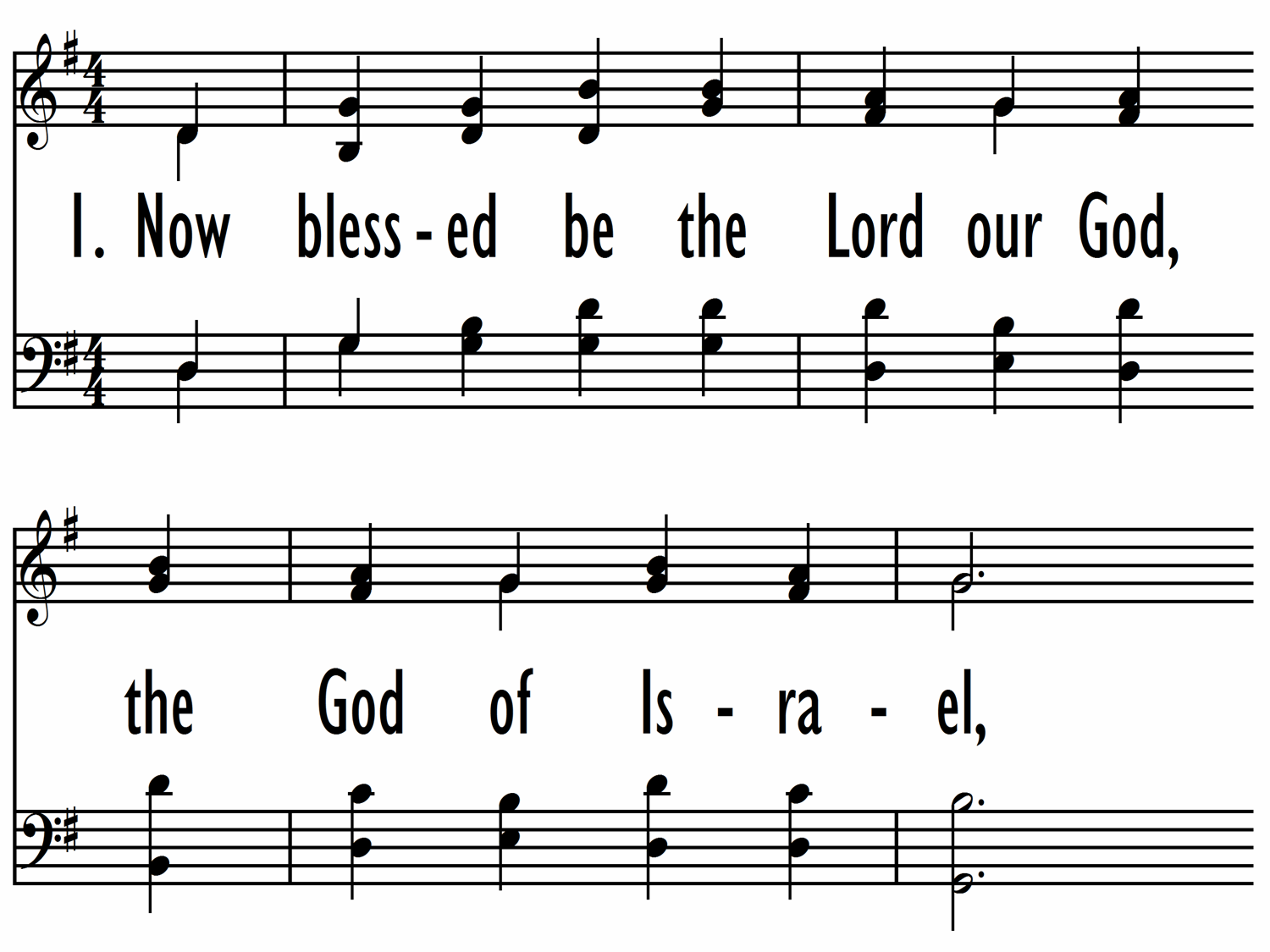- |
User Links
Now Blessed Be the Lord Our God
Hymn Information
- First Line
- Now blessed be the Lord our God
- Text Source
- <cite>Scottish Psalter</cite>, 1650, alt.
- Tune Name
- CORONATION
- Composer
- Oliver Holden (1793)
- Topic
- God's: Glory · Short refrains
Copyright Information
- Text Copyright
- Public Domain
- Tune Copyright
- Public Domain
- Reprint/Projection Information
- Words and Music: The Words and Music are in the Public Domain; you do not need permission to project or reprint the Words and Music.
Full Text
Scripture References
Further Reflections on Scripture References
Each of the internal "books" or original anthologies within the book of Psalms concludes with its own doxology. Psalm 72, at the end of Book II, features a doxology at verses 18 and 19. That biblical text is paraphrased in this hymn, a paraphrase originally published in the 1650 edition of the Scottish Psalter. However, what was originally a standard four-line common-meter text has been stretched into common meter of six lines to suit the tune.
"Now Blessed Be" is cast in the berakah form common in Jewish worship. God is to be blessed, or praised, because of his wondrous works and mighty deeds (st. 1) and because his saving acts reveal his glory throughout the earth and throughout eternity (st. 2). Amen and Amen! So shall it be!
Bert Polman, Psalter Hymnal Handbook
Confessions and Statements of Faith References
Further Reflections on Confessions and Statements of Faith References
How can the worshiper not conclude with such acclamations! When God is the “overflowing source of all good” (Belgic Confession, Article 1) and when he has provided all the benefits of Christ’s atonement and makes them ours so that “they are more than enough to absolve us from our sins,” (Belgic Confession, Article 22) our hearts cry out to him with praise and adoration. Therefore, Heidelberg Catechism, Lord’s Day 52, Question and Answer 128 includes the ending doxology of the Lord’s Prayer and teaches that “your holy name, and not we ourselves, should receive all the praise, forever.” And so consistent with these thoughts, Our World Belongs to God, paragraph 2 exclaims, “Our World Belongs to God! God is King: Let the earth be glad! Christ is victor: His rule has begun! The Spirit is at work: Creation is renewed! Hallelujah! Praise the Lord!” And the Belhar Confession, Section 5 concludes: “Jesus is Lord. To the one and only God, Father, Son and Holy Spirit, be the honor and the glory forever and ever.”
Now Blessed Be the Lord Our God
Additional Prayers
Blessed be the Lord our God.
Blessed be the Lord our God.
Blessed be the Lord our God. Amen.
Now Blessed Be the Lord Our God
Tune Information
- Name
- CORONATION
- Key
- G Major
- Meter
- 8.6.8.6.8.6


 My Starred Hymns
My Starred Hymns






